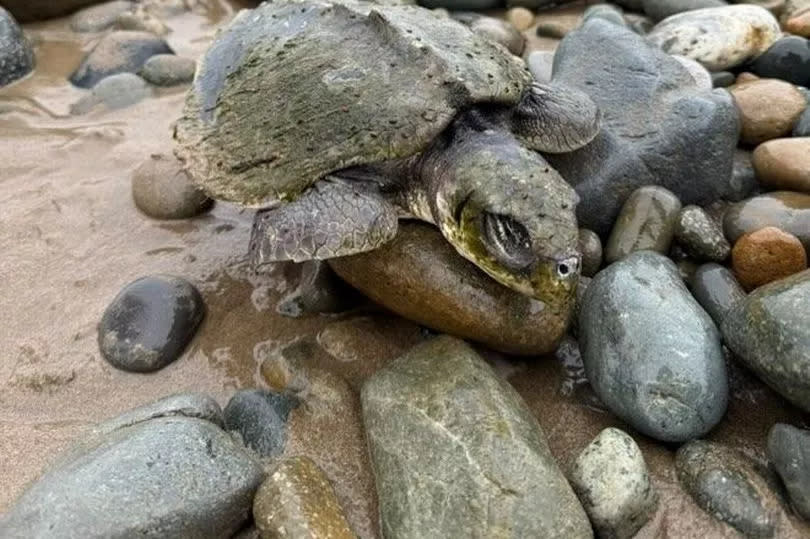Two brothers were stunned to find a turtle washed up on a beach near their home in west Wales. Theo Lawrence, eight, and Joshua Lawrence, three, thought they were looking at a large crab when they came across the turtle at Newgale beach in Pembrokeshire during a walk with their family on Christmas Eve.
The boys took pictures of the turtle which they wanted to help before realising it had died. It isn’t as uncommon as you might think for stranded turtles to end up on UK shores.
According to Marine Environmental Monitoring, a charity which records turtle strandings, incidents of turtles being washed up here are increasing. It’s believed stormy weather and strong currents are responsible for bringing turtles into colder waters.
ADVERTISEMENT
READ MORE: Woman goes missing on Christmas Day
READ MORE: Anger over plans to move courses at Wales’ oldest university campus 20 miles away
Earlier this year the Royal Navy helped return six loggerhead turtles to their original Atlantic habitat after they were washed up in parts of Wales and the south west of England. The turtles had been found alive and were being cared for by aquariums in Anglesey and Cornwall. Used to much warmer waters, turtles which have been washed towards the UK can become cold stunned and would die without swift intervention.


After finding the turtle at Newgale Joshua and Theo’s father Dan Lawrence, 33, from Roch, said: “We’ve been living here for 30 years and have never come across something like this or even heard of it. So it’s a very rare experience for us even though it appears to be a little more common now.
ADVERTISEMENT
“We regularly walk on the beach and we were both off work so we had a Christmas Eve walk and it’s one we’ll not forget. My son thought it was a crab and then when we realised we were like: ‘Wow, good heavens.’ It was pretty cool to see. Unfortunately the turtle was dead. It appeared very recently dead but it was obvious it was.”
According to the Marine Conservation Society (MSC) if you find a turtle washed up in the UK you should not return it to the water as it is likely in cold water shock. Instead you should carefully wrap it in a towel, keep its nostrils uncovered, and immediately report the sighting to a wildlife resource organisation such as the RSPCA or the MSC.
EMEA Tribune is not involved in this news article, it is taken from our partners and or from the News Agencies. Copyright and Credit go to the News Agencies, email news@emeatribune.com Follow our WhatsApp verified Channel




